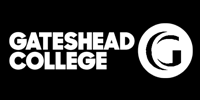Parliament Passes Digital Economy Bill
The Digital Economy Bill, which includes measures to combat industrial scale ticket touting has now received the royal assent and become law, amid unconfirmed reports that the Queen herself was scalped on Ed Sheeran tickets earlier this year.
The Bill was backed by MPs in Westminster on Wednesday last week (April 26) and was welcomed by Minister for Culture and Digital Economy Matt Hancock who said: “I’m delighted the Digital Economy Act has become law. This legislation will help build a more connected and stronger economy. The Act will enable major improvements in broadband roll-out, better support for consumers, better protection for children on the internet, and further transformation of government services”.
What isn’t mentioned by Hancock’s half hour is that the Bill, which was more or less Parliament’s final act before disappearing into the pre-election sunset, also includes an amendment giving the government the power to create a new criminal offence of using ‘bots’ to bypass limits on maximum ticket purchases set by event organisers- touts who use such software could face unlimited fines under the new legislation. In addition, the Bill also means that resale platforms will need to provide the unique ticket reference and booking number to potential buyers.
Anti-touting campaign and lobbying group FanFair Alliance said in a statement: “On top of Government measures to criminalise the bulk-buying of tickets, this relatively minor amendment to the Consumer Rights Act, for a ‘unique ticket number’ to be displayed when a ticket is listed for resale, should greatly increase transparency in the so-called secondary ticketing market. If enforced, it will give users some assurances that the ticket they are buying actually exists, as well as disrupting the practices of hardcore touts that thrive on sites like Viagogo, StubHub, Get Me In! and Seatwave”.
The statement continued: “Going forward, it is now vital that the UK’s consumer laws are enforced, and recommendations made in the Waterson Review of secondary ticketing are fully implemented. After the General Election, we will need details on how all these changes will work in practice. Only then, and combined with a concerted effort from industry and regulators, will this broken market be fixed and British audiences provided with the open and properly-functioning resale market they deserve”.
Indeed- a significant leap for campaigners but it’s not quite job done and the key will be in enforcement and implementation.
Address
Coronation House, 65 Quayside, Newcastle Upon Tyne, NE1 3DE
Telephone
07955289085
Connect with Generator
© Generator 2025 - All rights reserved.
Delivered with Cargo Creative




















